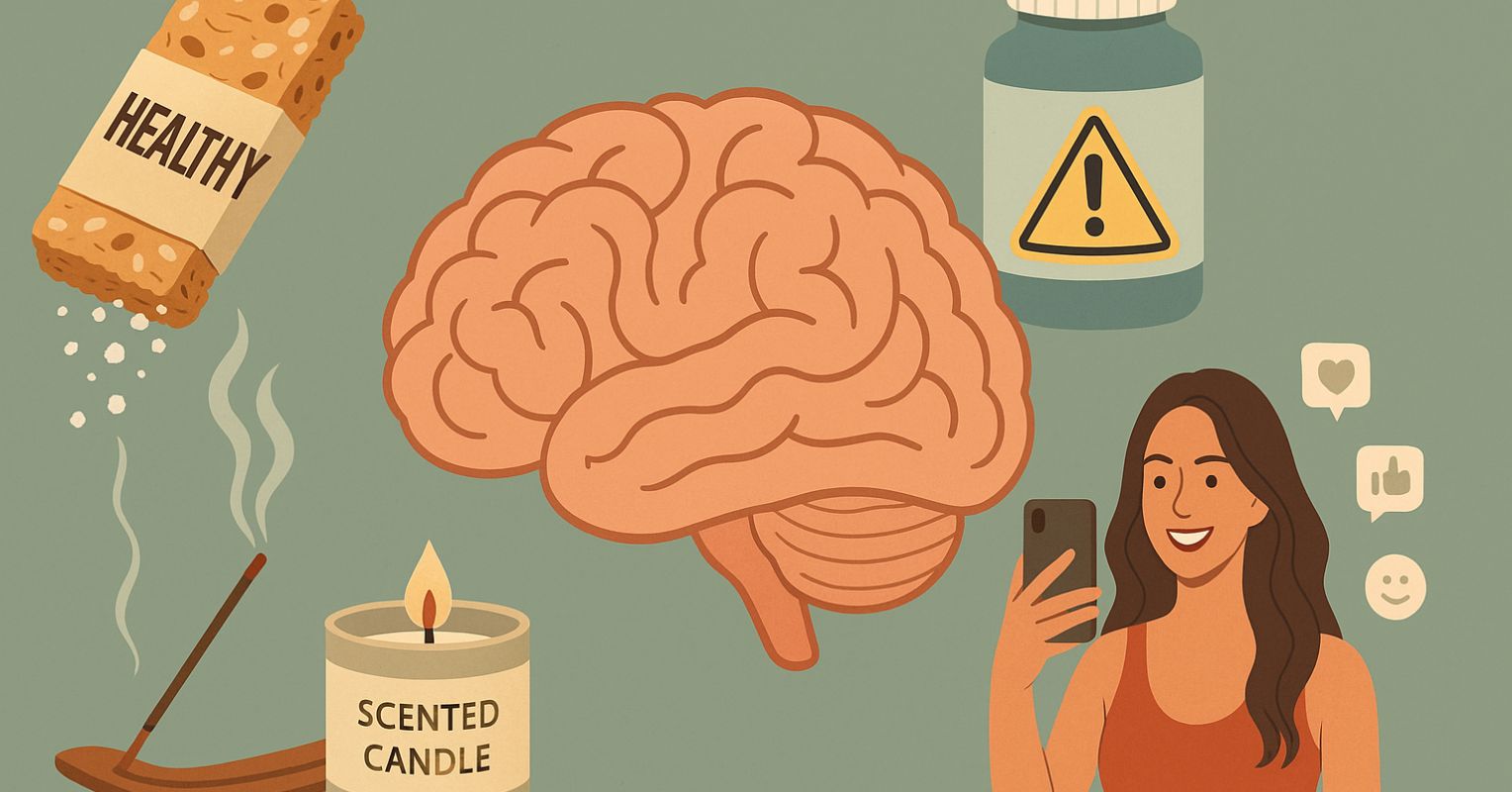
"Many bestselling products marketed as wholesome-like beverages, granola bars, flavored yogurts, cereals, and other snacks-are major sources of added sugar. Excessive sugar intake has been linked to accelerated cognitive decline and dementia risk. A recent UK Biobank analysis of over 200,000 people found that higher dietary sugar consumption was associated with a greater incidence of dementia."
"The supplement aisle is largely self-regulated: manufacturers need only ensure products are many supplements are at risk of containing brain-damaging molecules. When most Americans take supplements, the scope of a potential problem becomes profound."
"Obsessive health tracking can lead to unnecessary stress and anxiety, negating the supposed benefits of maintaining a healthy lifestyle. Instead of enhancing well-being, this manic quest for metrics often focuses on the negative."
"The burning of incense and scented candles, often perceived as innocuous, can actually release harmful pollutants. The indoor air quality deteriorates due to these alarming emissions which could potentially harm brain health."
Popular wellness trends, often marketed as healthy, can inadvertently harm brain function. Sugary health foods contribute to cognitive decline, with research linking high sugar diets to increased dementia risk. Supplements, largely unregulated, may contain harmful substances. Obsessive tracking of health metrics can exacerbate stress and mental health problems, while burning incense and scented candles releases indoor pollutants that are detrimental to brain health. Being informed about these trends is crucial for maintaining an overall healthy lifestyle without unintended consequences.
Read at Psychology Today
Unable to calculate read time
Collection
[
|
...
]